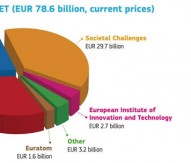
Eurostars in Horizon 2020 moves closer to a six-month time-to-contract
Under Horizon 2020, national agencies allocating Eurostars funds have taken one step closer to a six-month maximum period between the moment an SME submits a funding application and the moment a grant contract with a public authority is signed.
Gathering in Brussels, representatives from the 36 national bodies involved in the funding programme met for the first meeting of the Eurostars national implementation group. The role of the group is the definition, implementation and monitoring of progressive milestones concerning the operation of Eurostars.
Delegates from the 34 countries involved in the programme identified the main pace blockers to faster time-to-contract and, as a result of the meeting, efforts will be made to harmonise national rules, simplify administrative procedures and streamline the financial aspects of the programme. Clear milestones and deadlines have already been defined.
The national funding bodies behind the Eurostars programme and the central Eurostars office in Brussels have so far reduced the so-called ‘time-to-grant’ to a median period of less than eight months – a 25% improvement since the start of the programme.
For small companies developing innovative technologies, time is of the essence: a one month advantage in a patent race can mean either bankruptcy or millions of euros of benefits. The short procedure leading to a contract on a grant between companies and public funding bodies is essential to the success of Eurostars, the only European funding programme to be specifically dedicated to R&D-performing SMEs.


